Members of the Class of 2021 at the University of Virginia School of Law will soon begin their three-year journey toward becoming lawyers and making their mark in the world — although in many ways they already have.
“We chose you, each and every one of you, because of who you are, because of what you bring to the table and because of the people whom we think you are going to become as you grow and learn here,” Dean Risa Goluboff told first-year students at orientation Monday. “And we are so happy that you are here.”
The diverse 320 members of the Class of 2021 were selected from a pool of 5,646 applicants. They earned a median undergraduate GPA of 3.89 and a median LSAT score of 169, and represent 164 undergraduate institutions. (Full Class of 2021 profile)
Among the class, 44 percent are women, 26 percent are people of color, and 8 percent self-identify as LGBT. They come from 36 states and the District of Columbia, with the most common states being Virginia, New York, California, Pennsylvania and Maryland.
“The members of the Class of 2021 are smart, community-oriented and kind,” said Assistant Dean and Chief Admissions Officer Cordel Faulk ’01. “These new students are Virginia Law people — they will make their fellow alumni proud once they leave Grounds with a UVA degree in hand.”
Meet the Students
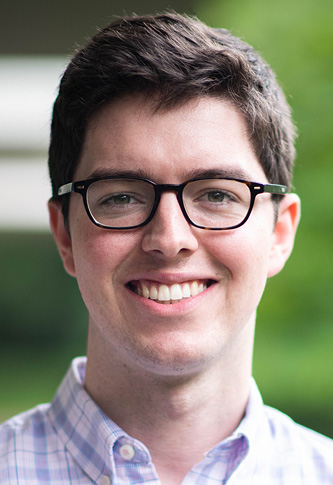
Alex Caton, of Geneva, Illinois, graduated from the University of Notre Dame with a degree in American politics. Afterward, he participated in a fellowship with the governor’s office in Illinois. He then tried his hand at journalism.
Along with another reporter, Caton broke a story for Politico Magazine in 2017 that a candidate nominated to a top National Security Council job plagiarized her Ph.D. dissertation. Caton later interned that spring at Washington Monthly and assisted on a book project, before deciding to study law.
He said he chose to attend UVA Law because he knew he could get a great education, and enjoy doing it.
“My impression of UVA versus some of the other institutions I visited was that most of the people here are happy most of the time, and that in law school, that’s not a given,” Caton said. “Getting a world-class legal education is important — and at UVA, it’s a sure thing.”
He said he’s not certain yet where his legal education will take him, but he hopes to combat unfairness in American life, and to go where he is most useful.
“Law is an honorable profession,” Caton said, “and performing it well is a public service.”
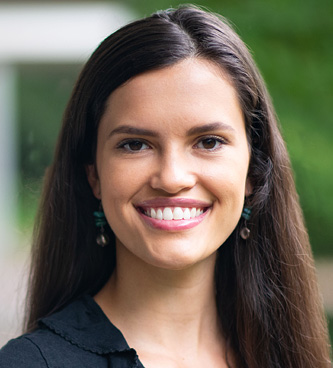
Pawhuska, Oklahoma, native Jeni Hendricks grew up on the Osage Nation and graduated with a bachelor’s in Native American studies from Dartmouth College. She then worked in Native American law and policy at a law firm in Washington, D.C.
“I chose UVA because everyone I met who attended the law school lit up when I asked them about their law school experience,” she said.
Hendricks also said that during an unannounced visit to UVA, administrators talked to her at length about what the Law School has to offer and were genuinely interested in her goals and passions.
After law school, she hopes to return to the field of Native American law and policy.
“I knew early on that attorneys have the ability to make a real impact in otherwise dire situations,” she said.
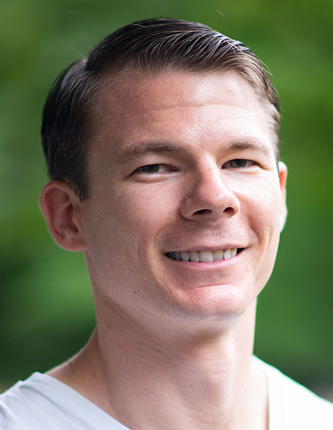
Chance McCraw, of Burkburnett, Texas, earned a bachelor’s in international relations from the U.S. Military Academy in 2010 and was commissioned as a second lieutenant in the Army infantry. He was deployed to Afghanistan. He graduated from Ranger School, Airborne School and Air Assault School. He also earned Combat Infantryman and Expert Infantryman badges.
In 2014, McCraw was promoted to captain, transitioned into military intelligence and deployed to Iraq as part of Combined Joint Task Force Operation Inherent Resolve.
He returned to Fort Hood in 2016 and served as a brigade security manager before he was released from active duty this year.
“I am attending law school so that I can help the disadvantaged to achieve a remedy to any issues they might face,” he said. “Specifically, I hope to reform the Uniform Code of Military Justice to remove antiquated articles that punish sodomy and other areas of a personal matter.”
Coming to UVA Law, McCraw said he is looking forward to the first softball game. He aspires to become a legal scholar specializing in military justice.
“UVA Law specifically provides me an opportunity to learn from some of the best minds in law at a top-tier institution a mere two hours from the heart of U.S. policy,” he said.
McCraw is among seven veterans in the class, representing the Army, Navy, Air Force and Marines.
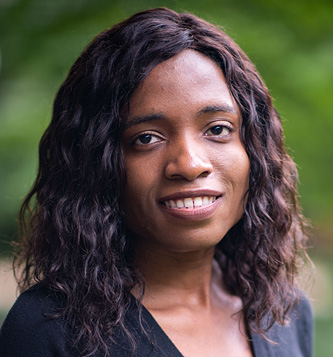
Lynn Onyebeke, of Jersey City, New Jersey, graduated with a master’s in environmental health from Harvard University and has worked as a clinical research coordinator for a major health system in New York City for the past four years.
As a researcher, she said she realized how difficult it can be to navigate through the complex web of health care laws and regulations. Onyebeke wanted to attend law school to help other health care professionals understand the laws and how to comply with them.
“I chose to attend UVA Law because it offered the opportunity to obtain a great legal education and continue that experience of working within a supportive, collaborative community,” she said. “When I visited UVA Law during Admitted Students Weekend, I knew that it was where I wanted to be for the next three years.”
She said she’s looking forward to learning and appreciating diverse perspectives within the Law School community. She is considering working in health care transactional and regulatory law, but is keeping an open mind about her future career.
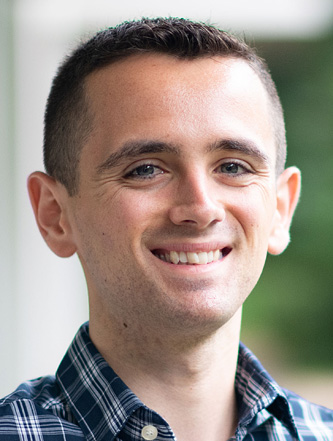
Anthony “A.J.” Santiago, a native of the New York City borough of Queens, graduated magna cum laude with a degree in philosophy, politics and law from the University of Southern California.
He worked at an immigration law firm in Los Angeles, where he enjoyed helping with asylum cases. He then returned to New York to intern for a judge in the matrimonial division of the New York Supreme Court.
Santiago said a constitutional law class in college sparked his interest in attending law school.
“At the same time, my identity as a member of the LGBT community has meant that I’ve always cared deeply about protecting individual liberties and combating discrimination,” he said. “As I thought about what career path I’d find both personally fulfilling and intellectually rewarding, it became clear to me that civil rights law would be an excellent fit, as it would allow me to both engage with constitutional issues and make a positive difference in people’s lives.”
He said UVA Law stood out for its strength in constitutional law and public service, as well as its collegial atmosphere. Santiago is also interested in the new Civil Rights Clinic.
After law school, he hopes to clerk for a federal judge before launching a career as a civil rights lawyer. He hopes to become a judge himself one day, “so that I can help to protect people’s rights on a broader scale.”
Other members of the class include a professional pianist, the founder of a women’s health nonprofit, a business analyst at a Thai state-owned petrochemical company, and the founder of a social media brand that advertised and tested off-road vehicles and products.
Founded in 1819, the University of Virginia School of Law is the second-oldest continuously operating law school in the nation. Consistently ranked among the top law schools, Virginia is a world-renowned training ground for distinguished lawyers and public servants, instilling in them a commitment to leadership, integrity and community service.


